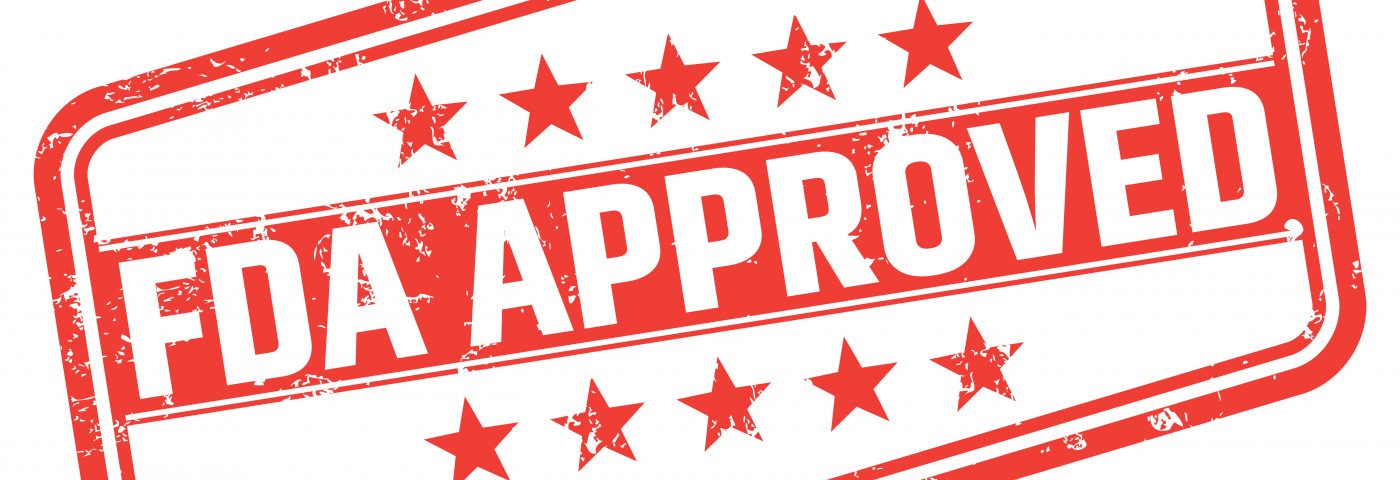The U.S. Food and Drug Administration has approved Onureg, an oral formulation of the chemotherapy azacitidine, as a maintenance treatment for adults with newly diagnosed acute myeloid leukemia (AML) who achieved complete remission after intensive induction chemotherapy.
The approval is for people in remission with or without complete blood count recovery, who are unable to receive intensive curative therapy, such as a stem cell transplant. It was based on promising data from the QUAZAR AML-001 Phase 3 trial (NCT01757535), in which Onureg significantly extended patients’ lives by nearly 10 months, compared with a placebo.
The FDA granted priority review to Bristol Myers Squibb’s application requesting Onureg’s approval, which reduced review time from 10 to six months. A similar application is under review by the European Medicines Agency.
“Continued treatment with Onureg demonstrated an overall survival benefit in adults with AML who had achieved first complete remission in the QUAZAR AML-001 study and, notably, it has the potential to do this in a convenient manner, given its once daily oral formulation,” Andrew Wei, PhD, trial lead investigator at the Alfred Hospital and Monash University, Australia, said in a press release.
“This approval should help establish continued treatment with Onureg as a standard component of AML therapy for adults who achieved first complete remission following chemotherapy and who cannot proceed to intensive curative therapy, like hematopoietic stem cell transplant,” Wei said.
Azacitidine is a chemotherapy agent that acts at the DNA level to restore the normal expression of genes often “turned off” by cancer cells to allow for uncontrolled proliferation and survival. It works to lower the number of abnormal blood cells and slow disease progression.
Intravenous (into-the-bloodstream) and subcutaneous (under-the-skin) formulations are already available for certain blood cancers, but Onureg (formerly known as CC-486) is a tablet formulation that allows for more convenient dosing, enabling the use of azacitidine as a maintenance therapy.
The QUAZAR AML-001 trial was designed to evaluate the safety and effectiveness of Onureg as a maintenance therapy in AML patients in complete remission after intensive first-line induction chemotherapy, with or without consolidation chemotherapy.
Ongoing at 220 clinical sites worldwide, the trial enrolled 472 participants, 55 years and older, who were not candidates for a stem cell transplant. Within four months of achieving complete remission, participants were assigned randomly to receive Onureg plus best supportive care, or a placebo plus best supportive care.
Onureg and placebo were given orally, once daily, for the first two weeks of each four-week cycle. Treatment was continued until disease progression or unacceptable toxicity.
The trial’s main goal is to determine whether Onureg extends patients’ lives compared to a placebo. Results presented at the American Society for Hematology Annual Meeting in December, demonstrated that patients on Onureg lived a median of 24.7 months compared with 14.8 months on placebo. This represented a 31% reduction in the risk of death, with the trial meeting its primary goal.
These survival benefits were seen regardless of patients attaining full or incomplete recovery of blood stem cells after intensive chemotherapy, and the use of consolidation chemotherapy.
Onureg also reduced the risk of relapse by 35%, and preserved health-related quality of life compared with a placebo.
In the trial, serious adverse events (side effects) were reported in 15% of patients receiving Onureg, and included mostly pneumonia and fever due to low immune cell counts. One patient on Onureg died due to generalized infection.
Overall, adverse reactions such as nausea, vomiting, diarrhea, fatigue, constipation, pneumonia, and abdominal pain were all more common with Onureg than placebo. But patients remained on treatment with Onureg for longer than those on placebo (12 cycles versus six cycles), supporting the treatment’s benefits and tolerability.
“The FDA approval of Onureg is the culmination of over a decade of research and 13 pre-clinical and clinical trials. We are grateful to the patients, families and caregivers who participated in and supported these trials, and who ultimately made today’s advancement possible,” said Giovanni Caforio, MD, chairman and CEO, Bristol Myers Squibb.
“This milestone is representative of our commitment to helping patients with hard-to-treat cancers live longer, and the approval of Onuregas an oral therapy option for patients is more relevant now than ever as the world continues to navigate the COVID-19 pandemic,” Caforio said.
Despite containing the same active ingredient as intravenous and subcutaneous azacitidine formulations, Onureg does not move into, through, and out of the body in a similar fashion and should not be used to replace such medications. This “may result in a fatal adverse reaction,” the company wrote.
Onureg’s prescribing information will feature warnings and precautions about this risk, as well as the risk for bone marrow suppression, and the increased mortality in myelodysplastic syndrome patients receiving this medication.

